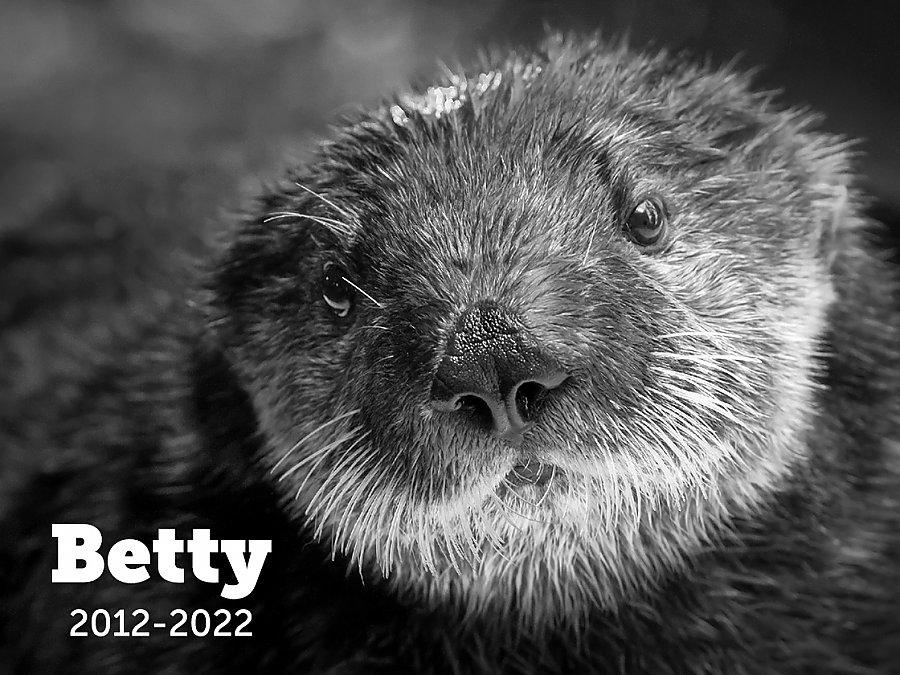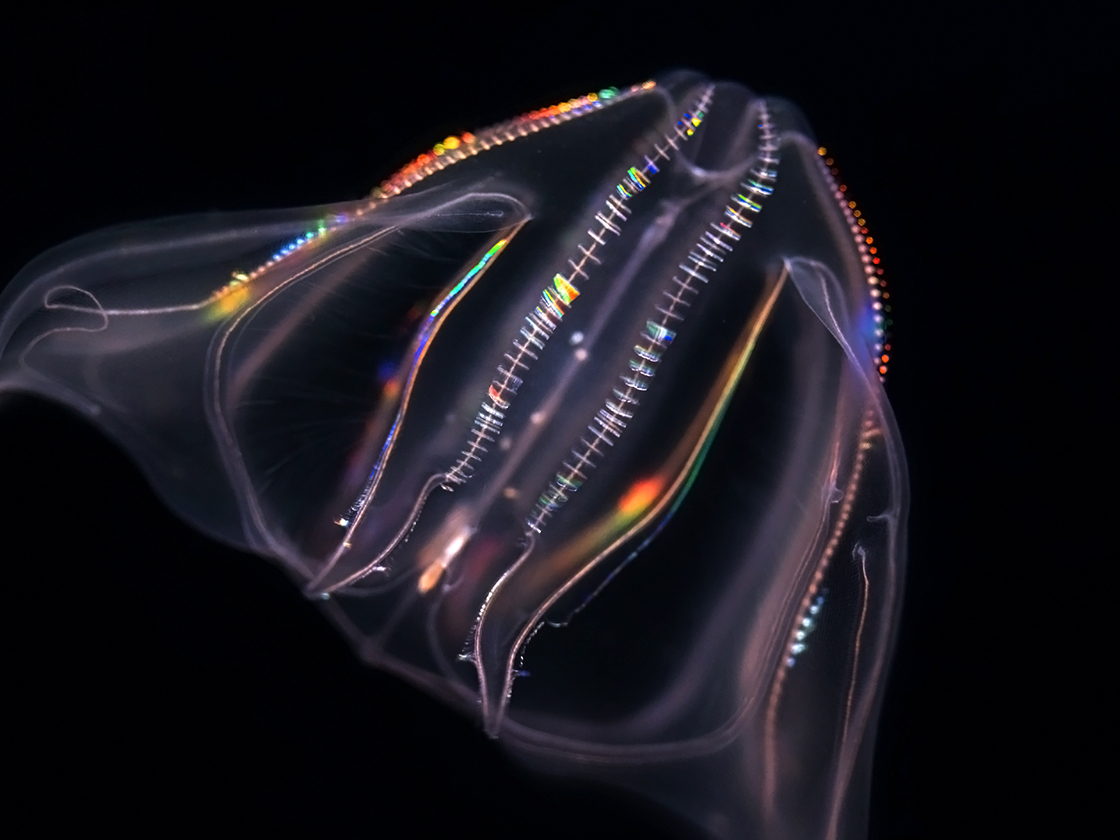Aquarium Mourns the Loss of Betty the Sea Otter
Betty was named after the Hollywood icon, animal lover, and dedicated Aquarium supporter Betty White.

Credit: Aquarium of the Pacific
July 15, 2022
The Aquarium of the Pacific is saddened to announce the passing of Betty the southern sea otter. Betty died suddenly early in the morning on Thursday, July 14, 2022, at 10 years old. Up until her passing, Betty had no known health issues or changes in behavior. In coming days the Aquarium’s veterinary team and outside veterinary specialists will conduct an exam to try and determine a cause of death.
Betty arrived at the Aquarium in March 2012 at an estimated age of 9 to 10 weeks old. She came to the Aquarium after being rescued off Del Monte Beach in Northern California on Valentine’s Day. Because she had lost her mother and did not have a chance to learn survival skills, government wildlife officials determined she was unable to take care of herself in the wild. The Aquarium offered her a permanent home and she made her way to Long Beach. Betty was named after the Hollywood icon, animal lover, and dedicated Aquarium supporter Betty White. The two met when White visited the Aquarium in 2012 to celebrate her ninetieth birthday.
“In recent months Betty had been one of the otters helping several newly arrived rescued sea otter pups navigate life at the Aquarium in the Sea Otter Habitat. Betty was known for high-speed eating, particularly squid, and her adorable clapping behavior. She will be greatly missed,” says Brett Long, Aquarium of the Pacific curator of marine mammals and birds.
Aquarium supporters and sea otter fans can make a donation in tribute to Betty by visiting pacific.to/betty
California’s southern sea otters are listed as threatened under the Endangered Species Act. Hunting in the eighteenth and nineteenth centuries nearly wiped out the entire population, and by 1938 only fifty remained. Conservation efforts have grown the population to nearly 3,000 in the wild, but these animals still face threats, including ocean pollution and habitat loss.







